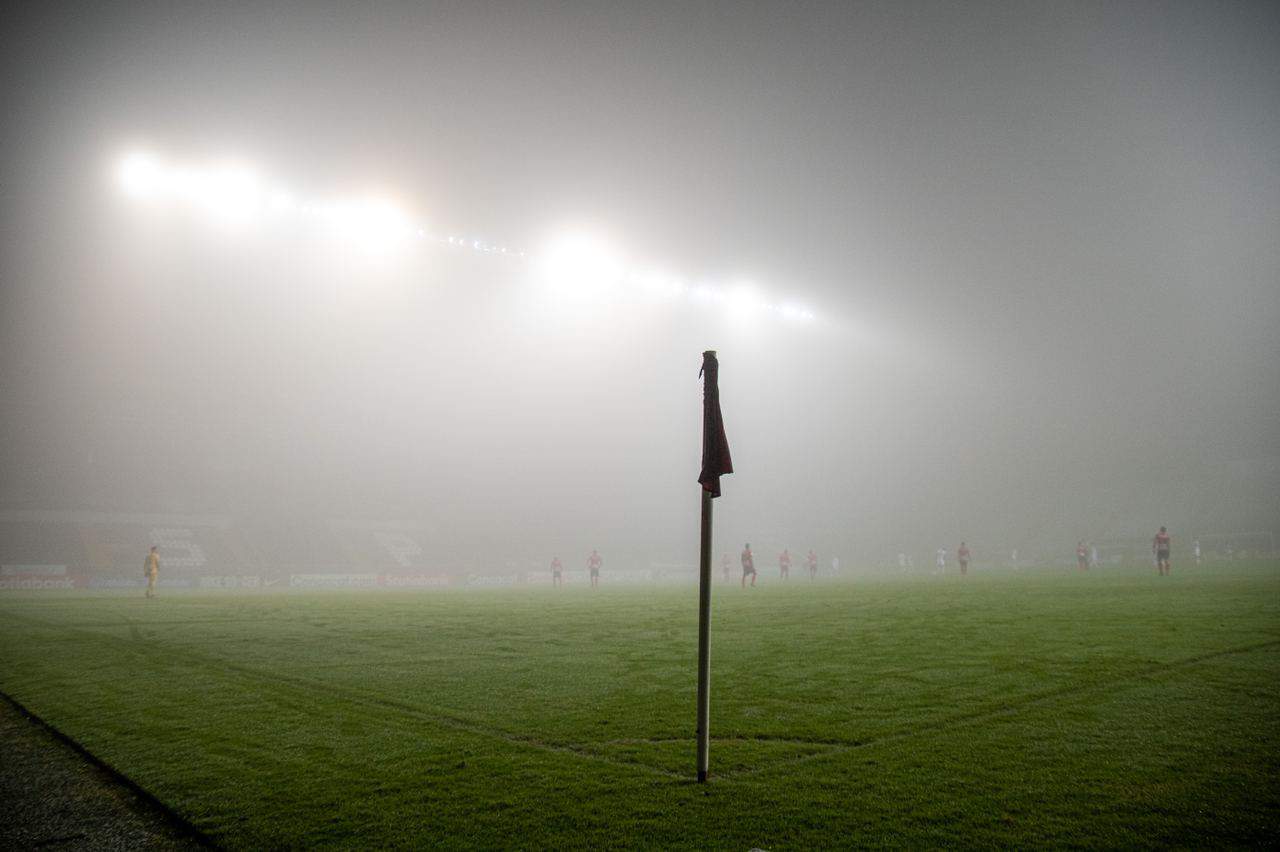Costa Rica squared off against the U.S. team in a World Cup Qualifying game on March 23, 1997, at Ricardo Saprissa Stadium in San José. My young son and I were seated in the middle section, near row 30. Saprissa is the stadium where the U.S. could never secure a victory against its CONCACAF rival. Bruce Arena, former U.S. national team coach, described it in a Sports Illustrated article (Andrea Corrales, 2009) as: “The way the stadium is, the fans are right on top of you.” Arena added, “That’s intimidating for players, but even more for officials.” At the time, the U.S. held a dismal 0-9-1 record in World Cup qualifying matches in Costa Rica.
The stadium was packed, as always, with its imposing, vertical design enhancing the excitement and tension. The atmosphere that evening was electric as we waited for the 8 p.m. kickoff. The temperature hovered in the low 80s, and the night sky was clear. There didn’t appear to be any designated USA sections—or at least, I wasn’t in one. Knowing the risks of openly displaying support for a foreign team in such high-stakes matches, I refrained from showing my allegiance. Soccer matches in rival stadiums worldwide could be unpredictable, and maintaining a low profile was essential, especially when seated among passionate home-team fans.
Despite the intensity of the crowd, I managed to stay calm throughout most of the game. However, during one moment of exuberance, when I clapped and yelled, I felt the flat sole of someone’s shoe hit squarely in the middle of my back. It wasn’t hard, but it was a clear warning. I quickly glanced back, unable to identify the offender, and turned my attention back to the game. The mood of the crowd was palpable, and though I silently rooted for the U.S., I restrained myself. My son, just eight years old, sat beside me, absorbing everything. I couldn’t help but wonder what was going through his impressionable mind.
About 15 minutes into the game, a questionable offside call drew attention to the linesman. He had a striking presence—a tall, broad-shouldered figure with a Caribbean physique, standing straight with impeccable posture in his referee uniform. Positioned at midfield and not far from him, I had a clear view of his back for much of the game.
Suddenly, a loud, hoarse male voice broke through the crowd. Middle-aged and unmistakably Tico, the man began bellowing racist epithets. It was an unrelenting wave of profanity and crude insults, filled with racial stereotypes and slurs hurled at the linesman below. The section around us fell silent—it seemed as though the entire stadium did. The tirade, switching between English and Spanish, was appalling. Yet, the linesman remained unflinching, standing erect and composed, not moving a single muscle. I couldn’t help but admire his stoic demeanor in the face of such a personal and disgusting attack.
Inside, I was torn. What was my son thinking, this eight-year-old boy, listening to such a public display of racial hatred? It could have been anywhere in the world—even in Pura Vida, Costa Rica. For a brief moment, I wanted to shout, “Stop! Stop the profanity!” But I imagined the consequences—being pummeled by a stadium full of spirited Ticos with national pride on the line. Instead, I quietly said to my son, “Listen, son. Listen to the tirade. How can this be?” I thought of Costa Rica’s best players—Medford, Wanchope, Wallace—many of whom shared the very background being insulted. The irony was glaring, and the moment left me grappling with its meaning.
Costa Rica ultimately won the game 3-2. The U.S. goals were scored by Eric Wynalda and Roy Lassiter, with an assist from Claudio Reyna. Costa Rica’s Hernán Medford scored the opening goal in the 10th minute, followed by Mauricio Solís in the 33rd, and Ronald Gómez, who secured the winning goal in the 76th minute. It was a match I would never forget, both for the play on the field and the raw human moments in the stands.
Written by John Washington








